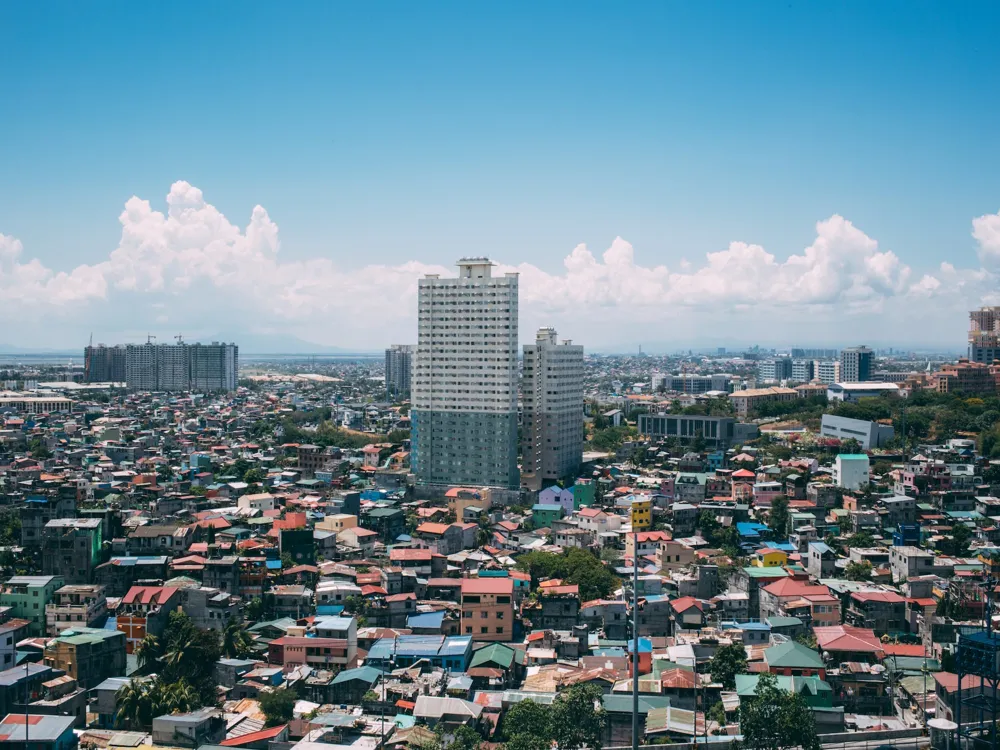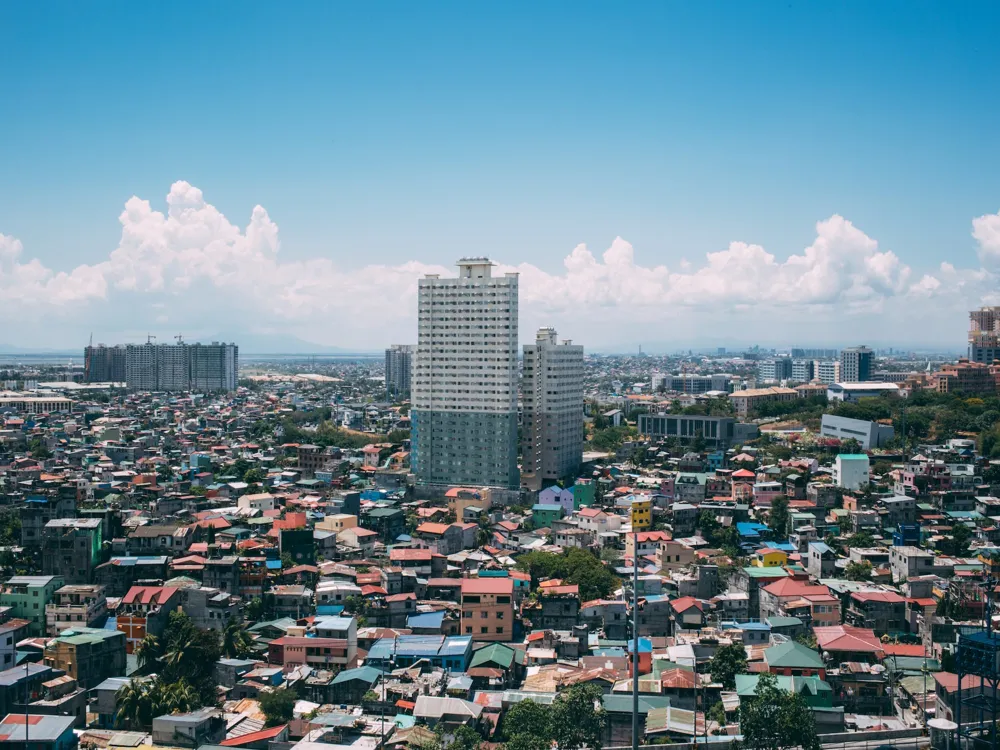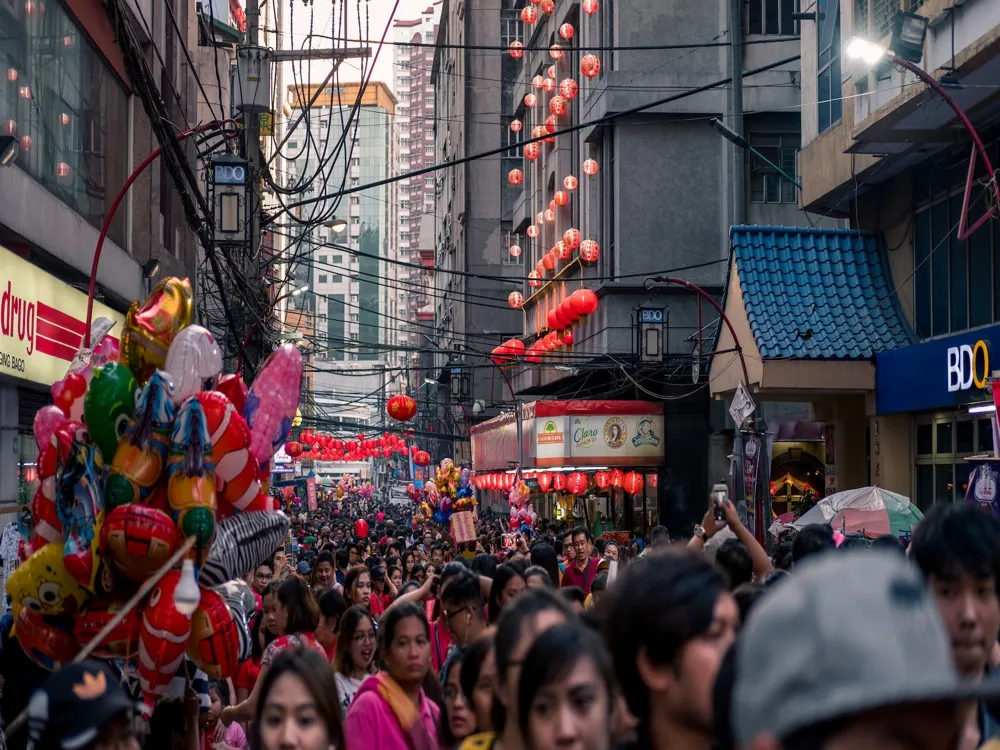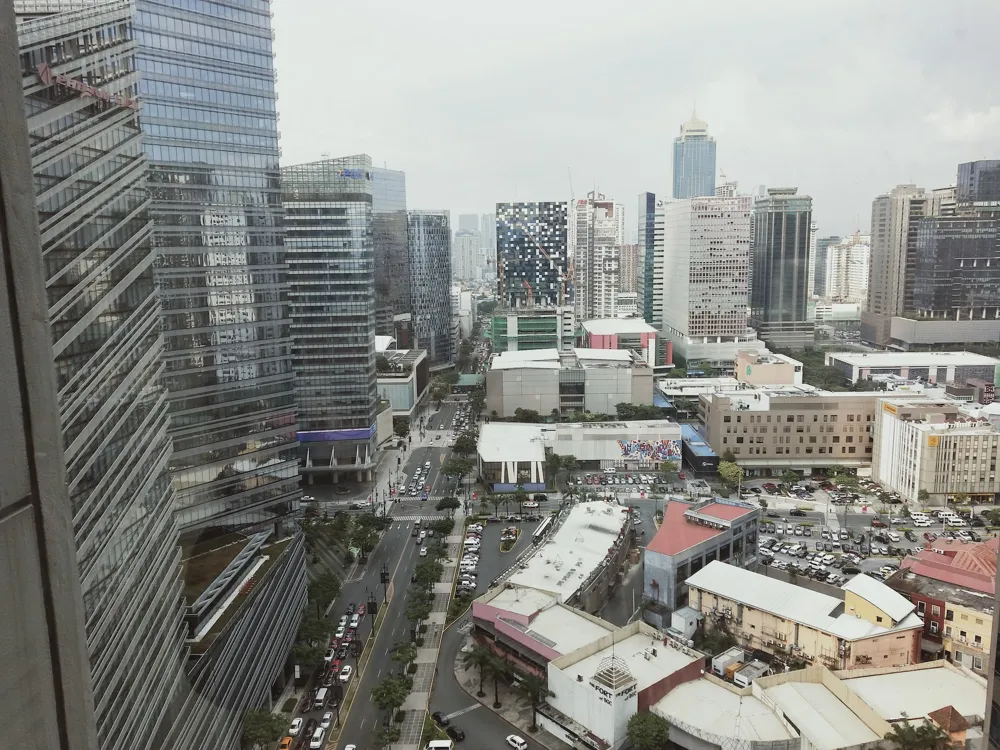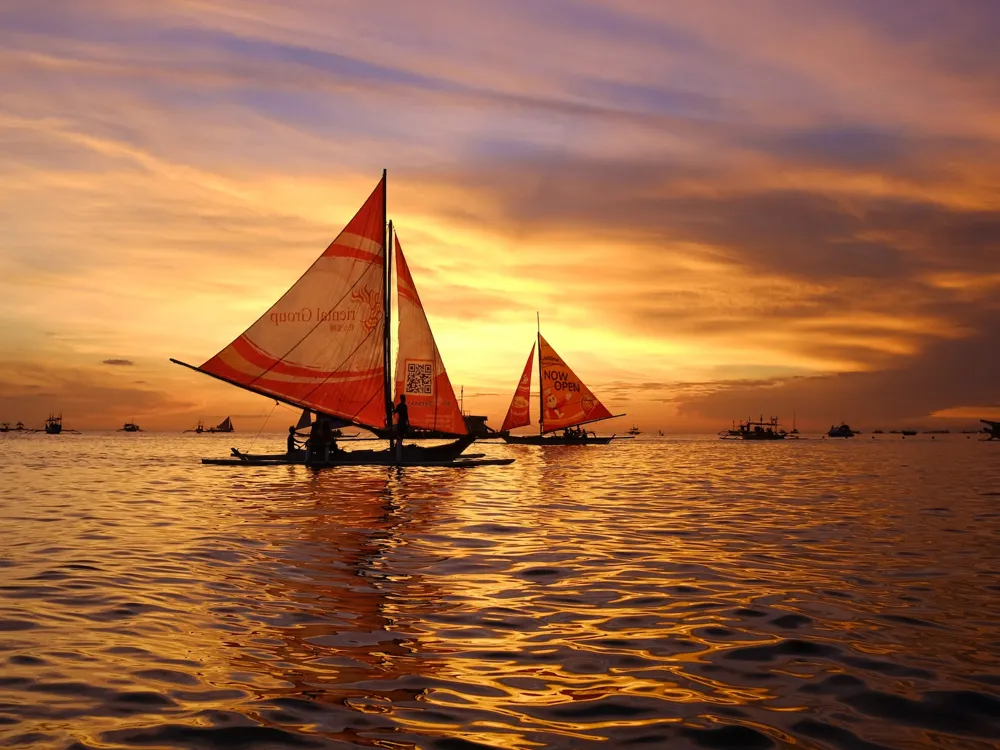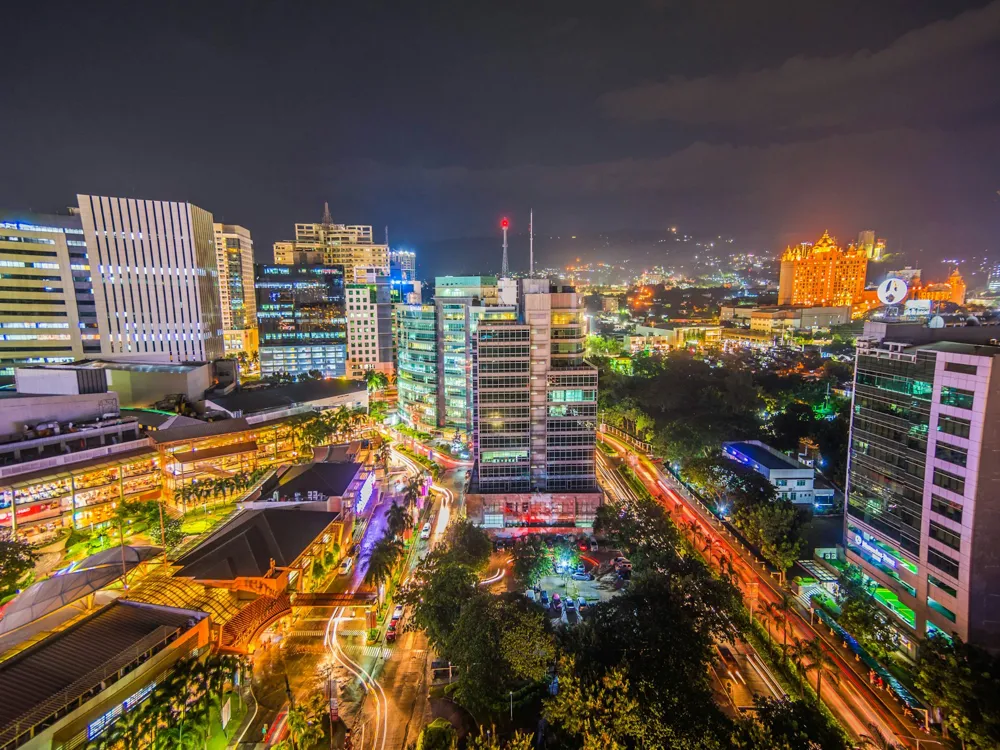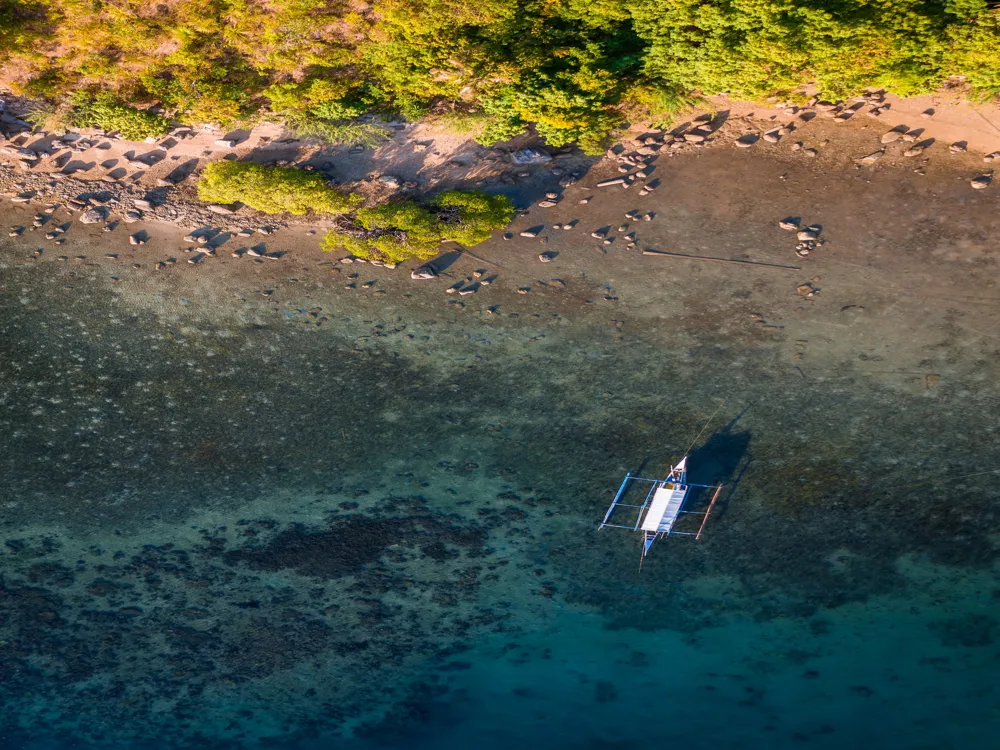Manila Bay, a natural harbor in the Philippines, has been an important part of the country's history and development. Spanning an area of approximately 1,994 square kilometers, the bay is famous for its strategic location and its breathtaking sunset views. Historically, it has been a significant naval gateway to the Philippines, serving as a stage for key battles and trade. The bay's deep and sheltered waters have played a pivotal role in maritime activities, influencing the economic and cultural development of the region. The landscape of Manila Bay is characterized by a mix of natural beauty and urban development. It is surrounded by a bustling metropolitan area, with the city of Manila to the east, Cavite to the south, and Bataan to the north. The bay's coastline is dotted with various ports, shipping facilities, and recreational areas, making it a hub of economic and social activities. Despite urbanization pressures, Manila Bay still retains its natural charm, with its wide, open horizon offering stunning views, especially at sunset. Environmental efforts have been pivotal in maintaining the bay's beauty. Initiatives for cleaning and rehabilitating Manila Bay have been ongoing, emphasizing the importance of preserving this natural treasure. These efforts aim to balance economic development with ecological sustainability, ensuring that Manila Bay remains a cherished landmark for future generations. For visitors, Manila Bay offers a multitude of experiences. From enjoying the famous Manila Bay sunset to exploring historical sites and modern attractions around the bay area, the place serves as a perfect blend of history, culture, and natural beauty. The bay's significance goes beyond its physical attributes, symbolizing the resilience and enduring spirit of the Filipino people. The architecture around Manila Bay is a testament to the Philippines' rich history and cultural diversity. This area showcases a blend of various architectural styles, reflecting the country's colonial past and its modern aspirations. Key landmarks around the bay include historical structures, modern skyscrapers, and public spaces, each contributing to the bay's unique architectural tapestry. One of the most iconic structures near Manila Bay is the Intramuros, a historic walled area in the city of Manila. Dating back to the Spanish colonial period, Intramuros represents Spanish colonial architecture with its ancient walls, churches, and cobblestone streets. Fort Santiago, a key historical site within Intramuros, is a prime example of military architecture from the Spanish era, offering insights into the Philippines' colonial history. In contrast to the historical architecture of Intramuros, the bay area also features modern architectural marvels. The Cultural Center of the Philippines (CCP) complex, a landmark of contemporary Filipino architecture, stands along the bay's waterfront. Designed by National Artist Leandro Locsin, the CCP complex is a symbol of the country's progress in arts and culture. Its brutalist architectural style, characterized by bold, geometric forms and raw concrete surfaces, makes it a standout feature in the Manila Bay skyline. Other notable architectural highlights around Manila Bay include the Mall of Asia, one of the largest shopping malls in Asia, showcasing modern commercial architecture, and the Manila Ocean Park, an oceanarium that combines educational and recreational facilities with contemporary design elements. The Baywalk, a popular promenade along Roxas Boulevard, offers a scenic view of the bay against the backdrop of the city's evolving architectural landscape. The architecture of Manila Bay is not just about individual buildings but the collective urban fabric they create. It represents the harmonious coexistence of historical heritage and modern development, mirroring the dynamic and diverse nature of Filipino society. The ideal time to visit Manila Bay is during the dry season from December to May. This period offers clear skies and pleasant weather, perfect for enjoying outdoor activities and the famous Manila Bay sunset. Avoid the rainy season from June to November, as it can lead to rough seas and limited outdoor enjoyment. When visiting Manila Bay, it's essential to bring sunscreen, hats, and sunglasses to protect against the tropical sun. Comfortable walking shoes are recommended for exploring the area. Don't forget to bring a camera to capture the stunning views and memorable moments. Manila Bay area offers a variety of dining options, ranging from street food to upscale restaurants. Seafood is a must-try, given the bay's proximity to fresh catch. Also, explore local Filipino dishes that reflect the diverse culinary traditions of the country. Always prioritize safety by being aware of your surroundings and following local guidelines. Respect the environment by not littering and participating in sustainable tourism practices. Be courteous and respectful to the locals, and embrace Filipino hospitality. Manila Bay is accessible by various modes of transportation. For international visitors, the Ninoy Aquino International Airport is the closest airport, with the bay area just a short drive away. Public transportation options include buses and jeepneys that have routes passing by the bay area. Taxis and ride-sharing services offer a more convenient way to reach Manila Bay. For those interested in a scenic route, ferry services are available, offering a unique perspective of the bay from the water. Read moreOverview of Manila Bay
Architecture of Manila Bay
Tips When Visiting Manila Bay
Best Time to Visit
What to Bring
Local Cuisine
Safety and Etiquette
How To Reach Manila Bay
Manila Tourism
Best Time to Visit Manila
How to Reach Manila
Things To Do Manila
Manila Bay
Manila
₹ 38,599 onwards
View manila Packages
Weather :
Tags : Landmark
Timings : Monday to Thursday: 4:45pm and 6:45pmFriday to Sunday: 3pm, 5pm, 7pm
Planning a Trip? Ask Your Question
Manila Travel Packages
View All Packages For Manila
Top Hotel Collections for Manila

Private Pool

Luxury Hotels

5-Star Hotels

Pet Friendly
Top Hotels Near Manila
Other Top Ranking Places In Manila
View All Places To Visit In manila
View manila Packages
Weather :
Tags : Landmark
Timings : Monday to Thursday: 4:45pm and 6:45pmFriday to Sunday: 3pm, 5pm, 7pm
Planning a Trip? Ask Your Question
Manila Travel Packages
View All Packages For Manila
Top Hotel Collections for Manila

Private Pool

Luxury Hotels

5-Star Hotels

Pet Friendly








